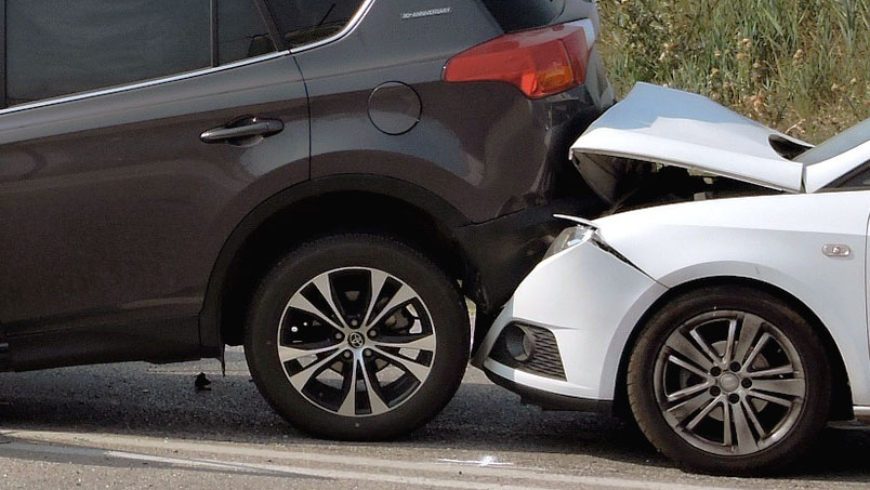
With more than 7 million vehicle collisions a year (as per the National Highway Traffic Administration) and approximately 2,7 million car accidents in Florida, how often are these crashes catostrophic? While most wrecks are fender benders and cause light damage, there are still millions that cause catastrophic damage including traumatic brain injuries, spinal injuries, debilitating soft tissue and organ injuries and even death.
Insurance agencies have estimated that three quarters of all accidents are what they refer to as “fender-benders”. These accidents result in minor to moderate injuries and the property damage doesn’t often result in the totaling of a vehicle. While these accidents are not making the daily news, and are usually settled quickly, any motor vehicle accident you are involved in should be reported to the proper agencies.
If there are no major injuries, you have probably exchanged information with the other driver, took pictures and have either reported it to your insurance agency or decided to pay for the damages yourself. So is it really necessary to call the police and report the accident? The answer is yes. You never know what may transpire or what complications may develop after the crash. Below are a few steps to ensure you are protected both financially and legally, even in the most minor accidents:
- Check For Injuries. While every accident does not necessarily result in any injury, it is important to check yourself and any occupants of your vehicle as well as the occupants of the other vehicle. If anyone is injured, do not attempt to treat them or move them yourself. Wait for the police or EMT to arrive at the scene.
- Call 911. You need to report the accident as soon as possible. Either call 911 or highway patrol. Describe the accident and your location as best as possible and pay attention to any instructions given. Do not move vehicles unless you are told to do so. If there doesn’t appear to be any injuries or the vehicles are able to move, the dispatcher may advise you to move your cars out of the way.
- Do Not Apologize. Whether you are at fault or not, apologizing is the last thing you want to do. Maintain composure, be polite and respectful to the other driver, and ensure everyone is safe. Even the smallest cases may end up being more significant than they appear, and end up in court. Apologizing at the scene of the accident could be interpreted as you admitting fault.
- Avoid Blame. What you say and do in those first moments of an accident can determine how your future claim goes. Even if you are absolutely clear the other driver is at fault, try to remember that people make mistakes and the other driver most likely did not purposely drive into your vehicle. If you jump out of your car angrily, the other driver will just be defensive.
- Avoid Confrontation. Accidents are always unpleasant and inconvenient. No one is going to be pleased to have to deal with one, but it is imperative that you avoid a confrontation. Your gut instinct may be to scream at the driver at fault, or if you are the at fault driver, the occupants of the other vehicle may be screaming at you. A non-confrontational attitude is the key to making this experience as painless as possible.
- Exchange Insurance Information. Whether you choose to report the accident to the police or not, make sure you get insurance information from the other driver. Even if you mutually agree to take care of your own vehicles or determine there is not enough damage to matter, do not walk away from the scene without insurance information. You never know if the other driver will have a change of heart and decide to file a claim at a later day.
- Take Photos. For the same reason you want to ensure you exchange insurance information, you want to make sure you take multiple, detailed photographs. You will want pictures of the damage, or lack of, on both cars, as well as images of the scene and any injuries. This will prevent the other driver from claiming damages were your fault that may have occurred after your accident.
- Call Your Own Insurance Company. It is best practice to contact your insurance company as soon as possible. Depending on your policy, you usually have a 48-hour window to do this. However, calling your insurance company as soon as possible will ensure you are the first to speak to them about your accident. If you wait, the driver of the other vehicle may contact their insurance company or yours to file a claim before you have had the opportunity to report your side of the story. Additionally, if you are absolutely positive the driver of the other vehicle is at fault, you should be contacting their insurance company to report the accident.
- Call an Attorney. If for any reason you feel you are being mistreated or you feel that you have a larger claim than what insurance is offering, you are often entitled to and should receive a fair and equitable settlement. If you are having difficulties managing your claim through insurance, an attorney can make a huge difference.
If you are involved in an accident in South Florida, reach out to the Zappitell Law Firm. We can review the details of your accident and advise you of your options. Please see us at www.florida.law or call us at (561) 330-6330.